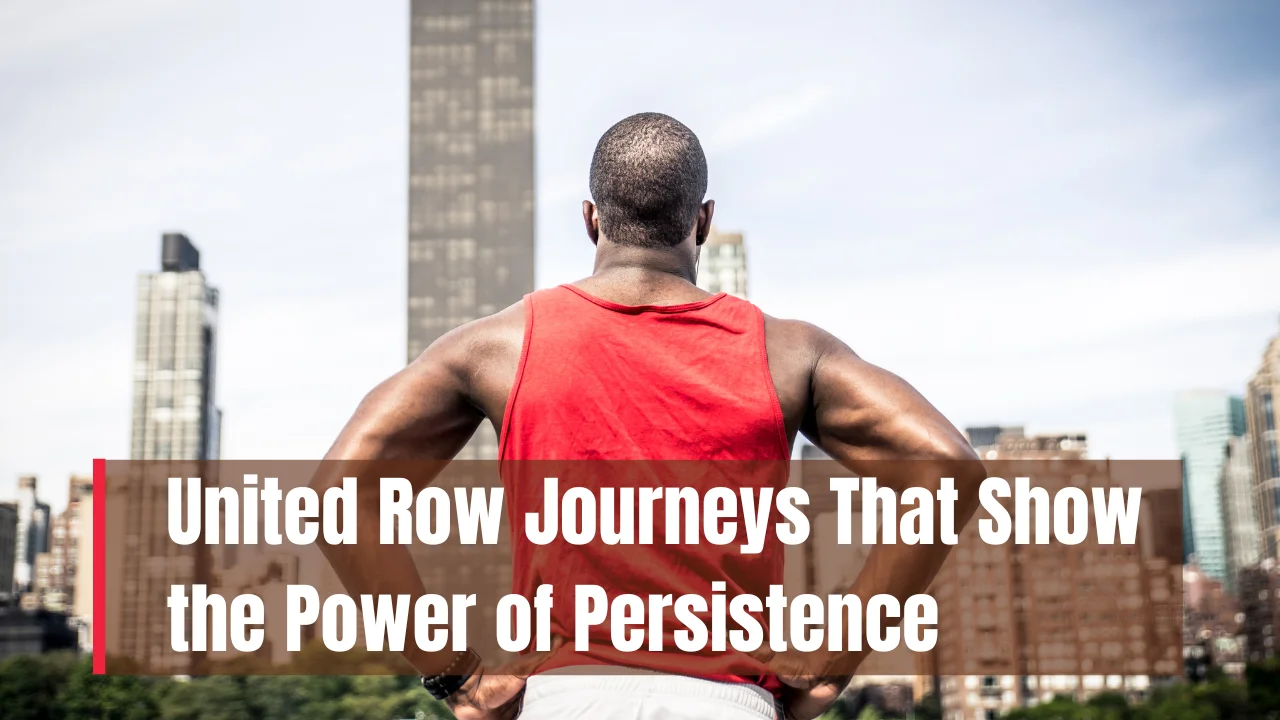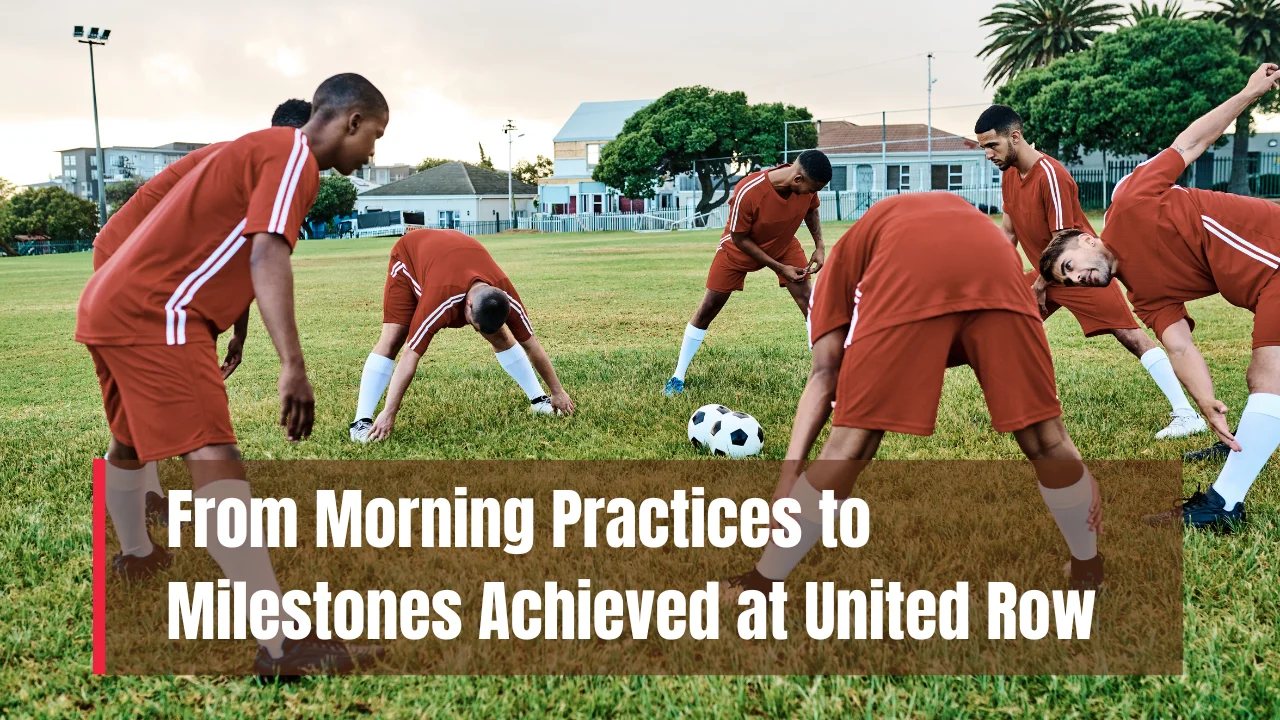United Row Training: United Row Training is more than synchronized strokes across calm waters. It’s a transformative journey that builds strength far beyond the body. It teaches individuals how to manage time, regulate emotions, and work with others in high-pressure situations. While the physical aspect is often highlighted, it’s the unseen life skills gained through rowing that leave a lasting impact.
In this article, we’ll explore how this training method develops valuable life lessons that go well beyond the sport itself. From leadership skills and teamwork to personal growth and mental resilience, United Row Training becomes a lifelong coach. Whether you’re new to rowing or familiar with the sport, this in-depth guide sheds light on how each stroke builds more than muscle—it builds character.
United Row Training: A Foundation for Life Skills
United Row Training is a structured physical and mental training approach rooted in the discipline of rowing. While the visible outcomes are strength and endurance, the hidden value lies in the essential life skills developed along the way. These skills—like focus, cooperation, adaptability, and emotional strength—apply directly to education, career, and relationships. The process of consistently showing up, pushing through setbacks, and staying in sync with a team fosters personal development that reaches far beyond the boat.
Overview Table: A Glance at Life Skills from United Row Training
| Life Skill Developed | How It’s Strengthened Through United Row Training |
| Discipline | Early practices and strict routines teach consistency and focus. |
| Team Coordination | Requires perfect sync with others to achieve optimal performance. |
| Time Management | Balancing training with other responsibilities improves planning. |
| Leadership Skills | Encourages leading by example, motivating teammates, and strategy. |
| Emotional Strength | Builds resilience during failure, fatigue, and challenging races. |
| Communication Skills | Silent, non-verbal coordination refines clarity and cooperation. |
| Mental Resilience | Teaches how to stay focused under pressure and push past limits. |
| Personal Growth | Long-term improvements in self-awareness, patience, and drive. |
Improves Discipline and Focus
Rowing demands consistency. Early mornings, rigorous sessions, and strict schedules are the norm in United Row Training. This daily structure breeds discipline in a natural, experiential way. It requires athletes to commit fully—not just during the race but every day leading up to it. The dedication needed to repeat drills, perfect technique, and hit performance goals translates to personal and professional environments.
Focus is equally important. The rhythm of rowing leaves little room for distraction. Maintaining steady form and timing sharpens one’s ability to concentrate for long periods. Over time, this focused mindset becomes second nature, helping rowers manage complex tasks, meet deadlines, and remain present in conversations and responsibilities.
Strengthens Communication and Teamwork
Unlike many sports, rowing relies heavily on non-verbal communication. The sound of oars, the rhythm of movement, and the feel of the boat guide decisions. United Row Training teaches athletes how to sense others, anticipate actions, and adjust seamlessly—skills vital in team environments both on and off the water.
This level of trust and coordination builds deep-rooted teamwork. Each athlete learns that personal success depends on group success. Being out of sync isn’t just a mistake—it affects the entire boat. That lesson stays with rowers and often makes them stronger collaborators in workplaces, families, and friendships.
Builds Emotional Strength and Resilience
Rowing is exhausting. It pushes the limits of both body and mind. The ability to keep going when everything hurts is where emotional strength is born. During hard sessions or disappointing results, athletes must fight through doubt, fear, and frustration. They learn to control their emotions and respond constructively to setbacks.
Over time, mental resilience develops. In the workplace or in life, this translates to staying calm in stressful meetings, navigating rejection or failure, and maintaining focus during life’s rough patches. Resilience isn’t just about bouncing back—it’s about learning and growing with each challenge, which United Row Training reinforces with every row.
Develops Time Management Skills
Between school, jobs, social lives, and training, rowers must become masters of time. Every hour counts, and late arrivals or skipped practices aren’t an option. This makes United Row Training a powerful tool for building strong time management habits.
Planning meals, recovery, workouts, and sleep teaches prioritization. Rowers often develop strict routines to ensure they have time for everything. This discipline in scheduling doesn’t disappear after training ends. Instead, it becomes a foundation for managing future responsibilities with greater efficiency and intention.
Encourages Leadership and Responsibility
Leadership in rowing doesn’t come from shouting instructions. It comes from leading by example. Being the first to show up, the last to complain, and the one who supports teammates even on the worst days. In United Row Training, individuals grow into leadership roles naturally by developing confidence, decision-making skills, and empathy.
Whether as a team captain or a quiet motivator, rowers take ownership of their responsibilities and often inspire others to follow suit. This real-world leadership training translates to group projects, job roles, and community settings where initiative and trust matter most.
Two Key Life Skills Gained through United Row Training
- Self-Motivation
Success in rowing doesn’t come from external praise—it’s built on inner drive. Rowers push themselves through long workouts and tough conditions without needing constant encouragement. - Adaptability
Whether it’s adjusting to a new team, weather changes, or unexpected race-day issues, rowing teaches quick thinking and flexibility—qualities essential for today’s fast-changing world.
Health and Well-being Benefits
Beyond mental and social skills, United Row Training offers lasting physical rewards. The repetitive, low-impact nature of rowing builds endurance, strength, and cardiovascular health. Athletes develop better posture, stronger cores, and improved coordination.
Exercise also improves mental clarity and reduces anxiety. By staying active and physically fit, rowers often experience better sleep, improved moods, and sharper focus—all contributing to an overall healthier, more balanced life.
Long-term Personal Growth
Perhaps the most profound gift of United Row Training is how it shapes individuals for life. The lessons learned in boats echo long after the last race. Many former rowers credit the sport for their ability to handle job interviews, manage parenting, and maintain long-term goals with persistence.
This growth isn’t temporary. It’s foundational. Rowers become more self-aware, reflective, and emotionally mature. They learn how to value consistency over talent, effort over luck, and collaboration over competition. These principles are not just rowing lessons—they are life lessons.
Final Thought
United Row Training isn’t just another fitness trend—it’s a system that shapes character. It helps people grow into more focused, resilient, and responsible versions of themselves. Whether you’re part of a competitive crew or a casual rower, the experience reaches far beyond physical strength. It teaches how to work with others, stay calm in chaos, and lead with quiet strength.
If you’ve ever considered rowing or want to develop these qualities in your own life, take the first step. Start with curiosity, show up consistently, and trust the process. The boat may take you forward on water, but the skills you gain will carry you forward in life.
FAQs
1. What are the main life skills taught by United Row Training?
It strengthens skills like discipline, teamwork, focus, time management, and emotional resilience through consistent physical and mental challenges.
2. Do you need to be an athlete to benefit from United Row Training?
Not at all. Anyone can benefit—regardless of age or fitness level. The focus is on personal development, not just competition.
3. How does rowing improve emotional resilience?
By pushing individuals through physical discomfort and mental barriers, rowing builds the ability to handle stress, stay calm, and recover from setbacks.
4. Can United Row Training help in professional or academic life?
Yes. The time management, communication, and leadership skills gained are directly transferable to school, work, and personal relationships.
5. Is team rowing better for life skills than solo sports?
Rowing emphasizes interdependence and silent coordination, making it especially powerful for learning collaboration, trust, and group accountability.












